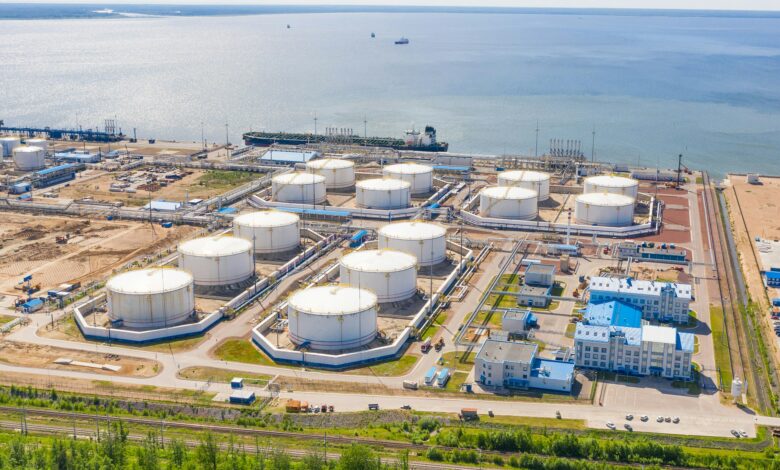Oil & Gas Jobs for Fresh Graduates: 2025 Survival Guide

Introduction to the Oil and Gas Industry for Fresh Graduates
As a fresh graduate in Nigeria, entering the oil and gas sector can be both challenging and rewarding. This industry is a significant contributor to Nigeria’s economy, offering high-paying jobs and opportunities for career growth. However, it requires specific skills and knowledge to stand out in a competitive job market. Here’s your roadmap to navigating this complex yet rewarding field.
Understanding the Oil and Gas Industry Structure
The oil and gas industry is divided into three main segments, each with unique roles and opportunities:
Upstream Sector: Exploration and Production
- Key Roles: Engineers (Petroleum, Mechanical, Electrical), Geologists, Drilling Technicians.
- Job Description: Focuses on finding and extracting crude oil and natural gas. This includes seismic surveys, drilling operations, and well completion.
Midstream Sector: Transportation and Storage
- Key Roles: Logistics Specialists, Pipeline Engineers, Safety Compliance Officers.
- Job Description: Involves the transportation and storage of oil and gas from production sites to refineries. This includes managing pipelines, terminals, and tankers.
Downstream Sector: Refining and Marketing
- Key Roles: Quality Control Specialists, Sales and Marketing Professionals, Environmental Managers.
- Job Description: Concerned with refining crude oil into usable products like gasoline, diesel, and jet fuel. Also involves marketing and distributing these products to consumers.
Essential Skills and Certifications for Oil and Gas Jobs
To succeed in the oil and gas industry, you need a combination of technical skills, certifications, and soft skills:
Technical Skills:
- Engineering Proficiency: Proficiency in CAD software for engineers, seismic interpretation for geologists.
- Data Analysis: Understanding data analytics tools to optimize operations.
- Digital Technologies: Familiarity with digital platforms used in oil and gas operations.
Certifications:
- Safety Certifications: NEBOSH for health and safety roles.
- Project Management: PMP certification for managerial roles.
- Industry-Specific Certifications: SPE or AAPG certifications for petroleum engineers.
Soft Skills:
- Communication: Effective communication to convey technical information to non-technical teams.
- Teamwork: Ability to collaborate across departments.
- Problem-Solving: Analytical skills to handle operational challenges.
Entry Points for Fresh Graduates
Several entry points exist for fresh graduates looking to join the oil and gas sector:
Graduate Trainee Programs
- Companies: Shell, Chevron, ExxonMobil, TotalEnergies, NNPC.
- Benefits: Structured training, competitive salaries, and a clear career path.
- Eligibility: Recent graduates with relevant degrees (Engineering, Geology, Business).
Internships and Training Programs
- Institutions: Petroleum Training Institute (PTI), Shell’s ASSIST Program.
- Benefits: Practical skills and potential job guarantees.
Entry-Level Positions
- Roles: Field Technicians, Administrative Assistants, Health and Safety Officers.
- Requirements: Relevant degree and basic certifications.
Current Job Opportunities in Nigeria
Here are some current job openings in the oil and gas sector in Nigeria:
- Business Development Officer (Oil and Gas)
- Location: Lagos
- Salary: ₦250,000 – ₦300,000 monthly
- Company: Blakskill Limited
- Key Account Manager (Non-Oil and Gas)
- Location: Victoria Island, Lagos
- Salary: ₦800,000 monthly
- Company: Blakskill Limited
- Technical Sales Manager (Oil and Gas)
- Location: Lagos
- Requirements: BSc. Chemistry or Petroleum & Gas Engineering, 6 years’ experience
- Company: Ascentech Services Ltd
- Sales Engineer (Oil & Gas)
- Location: Lagos
- Deadline: April 17, 2025
- Company: DexNova Consulting Limited
- Procurement Intern (Oil & Gas)
- Location: Lagos
- Deadline: March 25, 2025
- Company: Calibration and Non Destructive Services Limited
Strategies for Landing Oil and Gas Jobs
To increase your chances of securing a job in this competitive sector:
1. Tailor Your Resume and Cover Letter
- Highlight relevant skills and certifications.
- Use industry-specific language to describe your experiences.
2. Network with Industry Professionals
- Attend conferences and seminars.
- Use LinkedIn to connect with recruiters and professionals.
3. Stay Updated with Industry Trends
- Follow industry news and developments.
- Participate in online forums and discussions.
4. Consider Additional Certifications
- NEBOSH for safety roles.
- PMP for project management positions.
Overcoming Challenges in the Oil and Gas Industry
Navigating the oil and gas sector comes with its challenges:
1. Competition
- The industry is highly competitive, so it’s crucial to stand out with unique skills or certifications.
2. Unpredictable Market Conditions
- Be prepared for fluctuations in oil prices and global market trends.
3. Safety Concerns
- The industry involves high-risk operations, so safety training is essential.
FAQs About Oil and Gas Jobs for Fresh Graduates
Q1: What types of entry-level jobs are available in oil and gas?
A: Entry-level roles include graduate trainee, field technician, administrative assistant, health and safety officer, and junior engineer.
Q2: Can I get a job in oil and gas without an engineering degree?
A: Yes, the industry requires diverse skills beyond engineering, such as in finance, law, human resources, and health and safety.
Q3: What companies in Nigeria offer the best opportunities?
A: Leading companies include Shell, Chevron, ExxonMobil, TotalEnergies, and NNPC, as well as local firms like Seplat, Oando, and Aiteo.
Q4: Are there any specific certifications that are helpful?
A: Certifications in safety (e.g., NEBOSH), project management (e.g., PMP), and technical fields can give you a competitive advantage.
Q5: How important is networking in the oil and gas industry?
A: Networking is very important as it can provide access to job openings and connections with industry professionals who may refer you to job opportunities.
Immediate Action Steps
- Update Your Resume: Tailor it to highlight relevant skills and certifications.
- Network Actively: Attend industry events and connect with professionals on LinkedIn.
- Pursue Certifications: Consider NEBOSH or PMP certifications to boost your profile.
- Stay Informed: Follow industry news and trends to stay ahead.
- Apply Strategically: Use job portals like MyJobMag and LinkedIn to find and apply for roles.
Opportunities to Grab Now!
- How to Get a Job in Oil and Gas in Nigeria
- Top Skills and Certifications in Demand for Oil and Gas Roles
Embarking on a career in the oil and gas sector requires dedication, strategic planning, and continuous learning. By focusing on developing the right skills, networking effectively, and staying updated with industry trends, you can position yourself for success in this dynamic and rewarding field. Start your journey today!
